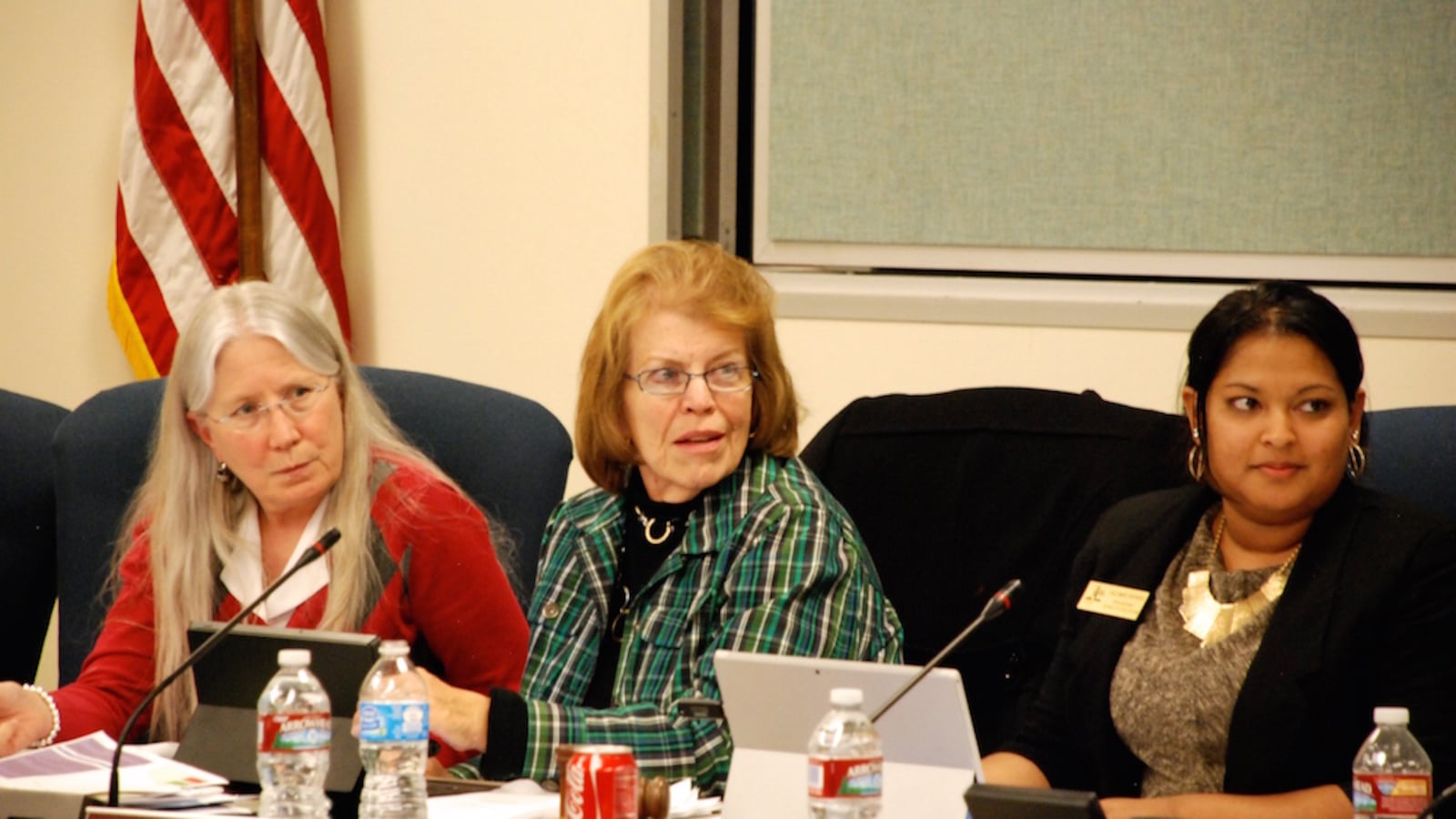AURORA — The Aurora Public Schools board adopted a single strategic document for the inner-ring suburban school district Tuesday night.
But school and community officials are betting that the thousands of new individual academic plans students develop will be what drives achievement forward.
As part of the district’s new five-year strategy, every APS student will write his or her own plan for the future, be asked to develop a set of skills to implement that plan, and earn credentials toward college or a career.
Known as APS 2020: Shaping a Successful Future, the plan is a stark departure from the district’s former governing documents. Previous iterations of the APS strategic plan were lengthy, packed with goals and initiatives written in education jargon, and were focused on what teachers and administrators would accomplish.
But APS 2020, officials say, is student- and parent-friendly, will likely be printed on just two pages, and places the responsibility for academic success on the students.
“We agreed as a community that this plan was about student self-determination,” said Rico Munn, Aurora’s superintendent. “It’s about them having the capacity within themselves to shape their future.”
Much of the work outlined in the plan is already underway. APS has been a leader in developing career-pathways for students. And it recently rolled out a digital program that awards students certificates akin to scout badges for workplace skills like collaboration they can show they’ve mastered.
Aurora by the numbers
41,729 students
46 percent of third grader read at or above grade level
56 percent of students graduate on time
67 percent of students qualify for free or reduced lunch
38 percent of students have limited English skills
18 percent of students are whiteBut many details still need to be worked out. It’s unknown what an academic plan might look like for a kindergartner. And it will be a challenge to have each of APS’s 41,729 students write these plans within 90 days, as called for in the the proposal.
It’s also unclear whether the plan will accelerate student achievement quickly enough to starve off state intervention. Aurora is the largest school district on the state’s accountability watch list. It has two years to boost student achievement or face a number of state sanctions that could include losing its accreditation.
Munn said the district’s responsibility to the state weighed on the committee that developed the plan, but it was ultimately more important for APS to do what its community felt was best for its own students.
“We’re doing the work that needs to be done and the work our community told us needs to be done to move each and every kid forward,” Munn said. “That will play out however it plays out at the state. But that’s the work that needs to be done to accelerate the learning for all of our kids.”
Munn said the district does have a sense of urgency to improve its schools, 18 of which are on the state’s watch list. And, Munn said, the plan gets straight to the point.
“It’s not about some broad philosophical education theory,” he said. “It’s about saying ‘every single kid, we need to move. And here’s the strategies we’re going to use to do it.'”
Aurora teacher union President Amy Nichols, who served on the committee that created APS 2020, said she’s excited to work with Munn in implementing the plan. But she does have some concerns about how teachers will have time to work with students to develop their plans.
She said APS officials will need to address testing mandates and class sizes, especially at the middle school level, as they ask teachers to implement student individual plans.
“The best way to get something done is to ask the teachers,” she said. “They’ll find a way.”
Veronica Palmer, co-CEO of nonprofit parent engagement organization RISE Colorado, said it’s important for APS to engage families as they roll out APS 2020.
“Parents are a vital resource,” she said. “If parents know how they fit in, they’re more likely to be involved.”
That could lead to more parents supporting the district’s school improvement efforts, Palmer said. Palmer also served on the committee that drafted the plan.
APS 2020 was approved on a rare 4-3 vote. Board members Mary Lewis, Barbara Yamrick, and Amber Drevon, voted against the plan because they said the vision statement, “every student shapes a successful future,” was uninspiring. However, those members said they generally supported the rest of the plan.
“I love every other word in the plan,” Lewis said. “I will support it completely.”

